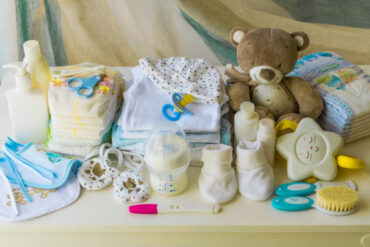Welcoming a newborn into your family is a joyous and exciting time, but it can also be filled with challenges, especially when it comes to sleep. Newborns have erratic sleep patterns, and establishing a consistent sleep routine is crucial for their well-being and your sanity as a parent. In this guide, we will explore the importance of a sleep routine for newborns and provide actionable tips to help you establish one effectively.
A Comprehensive Guide: How to Establish a Sleep Routine for Your Newborn
Why Is a Sleep Routine Important for Newborns?
A consistent sleep routine plays a vital role in your newborn’s development and overall health. Here are some key reasons why establishing a sleep routine is essential:

-
Promotes Healthy Growth
Adequate and quality sleep is crucial for your baby’s physical and mental development. A consistent sleep routine ensures they get the right amount of restorative sleep needed for growth.

-
Regulates Circadian Rhythm
Newborns are still developing their circadian rhythm, which regulates their sleep-wake cycle. A routine helps synchronize this rhythm, promoting better sleep patterns.

-
Reduces Fussiness
Babies with a predictable sleep schedule tend to be less fussy and irritable, making for a happier baby and a more peaceful home environment.

-
Enhances Bonding
Establishing a bedtime routine fosters a strong bond between you and your baby. The consistent, calming activities before sleep create a sense of security and comfort.
Tips for Establishing a Sleep Routine
Now that we understand the importance of a sleep routine, let us delve into practical tips to help you create one for your newborn:

-
Start Early
Begin establishing a sleep routine as soon as possible, preferably within the first few weeks after birth. While newborns may not follow a strict schedule initially, the consistency will gradually set in.

-
Create a Relaxing Bedtime Environment
Designate a quiet, dimly lit space for bedtime. Use calming activities like gentle massages, lullabies, or reading a bedtime story to signal that it is time to wind down.

-
Consistent Bedtime
Choose a consistent bedtime that aligns with your baby’s natural sleep cues. Aim for a bedtime routine that starts around the same time each night to establish a predictable pattern.

-
Follow a Pre-Sleep Routine
Develop a pre-sleep routine that includes soothing activities such as a warm bath, swaddling, or gentle rocking. Consistency in these rituals helps your baby associate them with sleep.

-
Watch for Sleep Cues
Learn to recognize your baby’s sleep cues, such as eye rubbing, yawning, or becoming less active. Respond promptly to these cues to avoid overtiredness, which can make it harder for babies to fall asleep.

-
Implement Day-Night Differentiation
Encourage daytime wakefulness with natural light, engaging activities, and minimal daytime naps in dark rooms. Conversely, create a calm, dark environment at night to signal that it’s time for longer stretches of sleep.

-
Be Flexible
While consistency is key, be flexible and adaptive to your baby’s evolving needs. Adjust the routine as necessary to accommodate growth spurts, teething, or developmental milestones.
-
Stay Patient and Persistent
Establishing a sleep routine takes time and patience. Stay consistent, even if there are initial challenges. With persistence, most babies adapt well to a structured sleep schedule.
Conclusion

Creating a sleep routine for your newborn is a valuable investment in their well-being and your family’s harmony. By following these tips and remaining patient and consistent, you can help your baby develop healthy sleep habits that will benefit them for years to come.
Remember, every baby is unique, so do not hesitate to seek support from pediatricians or sleep specialists if you encounter persistent sleep challenges. With love, patience, and a well-crafted sleep routine, you can navigate the joys of parenthood with confidence.







